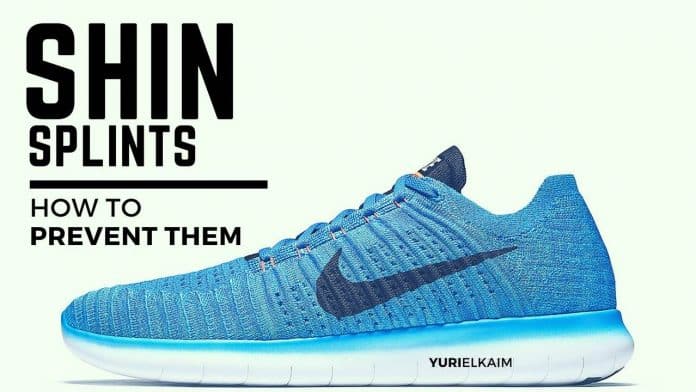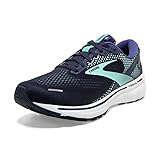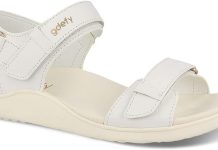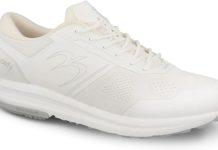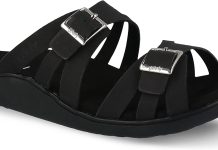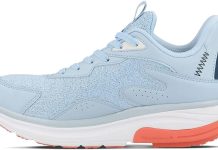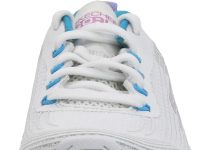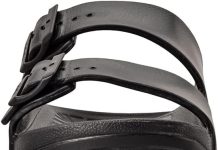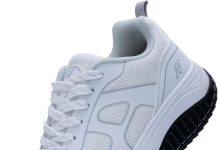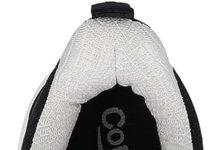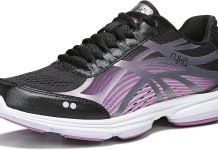“8 out of every 10 Americans overpronate, so they should not be in a soft, cushiony shoe. There are lots of causes for shin splints. However, the best shoe can assist you, and an expert can help you discover the best fit.
However, preferably a stability shoe,” stated Dr. Keith Jeffers, a San Diego, California-based chiropractic specialist understood as The Running Medical professional who has dealt with shin splints and other running disorders for 25 years.
Running is a great way to keep fit and stay healthy but it can also lead to painful issues like shin splints. Shin splints occur when the muscles in your lower leg become inflamed due to repetitive stress on the bones and strengths of your legs.
While this condition can be painful, several ways to counteract it include wearing the right running shoes.
In this blog post, we’ll look at some of the best running shoes for shin splints designed with unique features to help reduce the impact on your legs and feet.
We’ll also discuss some key features you should look for when shopping for shoes that will provide optimal support and protection while you run.
Leading 5 Advised Running Shoes for Shin Splints Reviews
Everybody must understand the elements before acquiring shoes for shin splints.
Look at the top five running shoes for shin splints advised by professionals.
SAUCONY: GUYS’ KINVARA 6 RUNNING SHOE

The aspect utilized to make the shoe makes it more resilient than other shoes. The shoe consists of a rubber sole. The rubber sole is crucial for running shoes.
The leather soles are implied for the proper shoes just. The shoe likewise consists of full-length power-grid cushioning. You will discover the pro-lock lacing system in the shoe, which makes lacing more unwinded and comfy.
NIKE: GUYS’ AIR QUEEN IV RUNNING SHOE
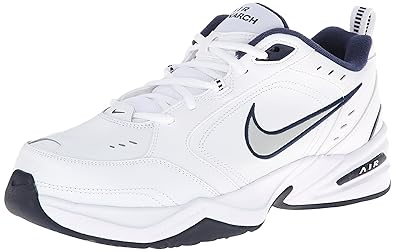
One of the significant functions of the shoe is that the shoe is much more lightweight. You can run as quickly as you desire with this shoe.
A mix of leather and manufactured products has been utilized in the production of the shoe.
Like all other running shoes, the shoe consists of a rubber sole. The shoe has properly designed cushioning inside the shoe. In this case, you will eliminate this issue by utilizing the shoe.
Read Next – Mizuno Running Shoes
Adidas Performance Men’s Duramo 7 M Running Shoe
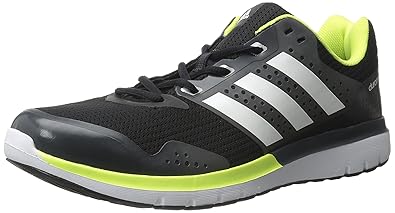
The shoe is designed correctly, drawing any individual to purchase this shoe. It consists of an air mesh upper, enhancing the shoe’s breathability.
You can utilize the shoe for a longer duration without altering it. The shoe will make fresh if you keep the shoe in the sun or an open environment.
One of the distinct functions of the shoe is the accessibility of Adiprene for cushioning.
Read Next – Top 5 Best Metatarsal Pads Walgreens
Mizuno Men’s Wave Prophecy 4 Running Shoe

The shoe has a mesh style. One of the disadvantages of shoes is obesity.
The shoe has 4.7-star evaluations on Amazon, which is outstanding. It will not be a bad option if you go for this shoe.
Read Next – What running shoes are best for supination?
Champion Men’s Gusto Runner

One of the primary functions of the shoe is that the shoe is made of material.
The shoe has a 4.2 Amazon evaluation; the evaluations have come from 393 individuals, a huge sample. You can put your trust in this shoe.
The shoe’s outsole includes rubber products that give your legs a firm grip while running or strolling. As the shoe is made of material, it will be simple to clean up the shoe.
Read Next – Best Walking Shoes for Flat Feet
ASICS Gel-Venture 6 Women's Running Shoe, Indigo Blue/Black/Coral, 8 M US
adidas Performance Women's Cloudfoam Pure Running Shoe, White/White/Black, 8 M US
ASICS Gel-Venture 6 Women's Running Shoe, Black/Carbon/Neon Lime, 7.5 M US
What Are Shin Splints?
Shin splints are defined by a throbbing discomfort in the shins, specifically throughout and after an extreme workout.
This condition that triggers shin discomfort can be connected to other injuries, such as plantar fasciitis or flat feet for runners.
They’re an issue for professional athletes in numerous sports. Runners are incredibly familiar with them.
As the legs pound against the ground, the muscle gradually retreats from the bone since of the tension.
Recommendable: – The 10 Best Under Armour Running Shoes
Runners most frequently experience shin splints on the front of their shin bone. It’s likewise typical on the sides of the shin. Still, others experience discomfort on the back of their shins, although this is relatively unusual.
If you’re experiencing shin splints for the first time as a runner, going to a medical professional for a skilled viewpoint is clever.
Your physician will let you understand whether the discomfort you’re experiencing is from shin splints or triggered by a more prominent issue like a fracture.
They’ll often carry out an x-ray to eliminate a tension fracture and other concerns.
Reasons for Shin Splints
It’s challenging to prevent shin splints. Fortunately, there is a lot you can do to avoid them from taking place. If you’re a runner, the possibilities are you’ll take on this injury at some time in your running profession.
The same goes for a shoe that is used well past its expiration date. Old shoes slip and move, increasing the tension that triggers unpleasant shin splints.
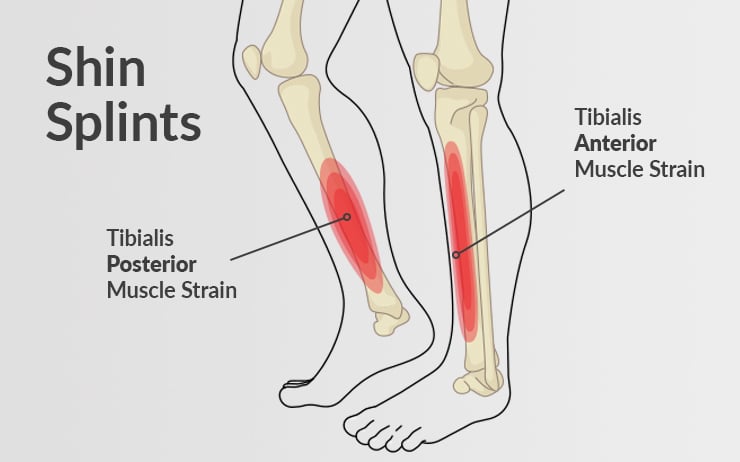
We’re not stating you must buy the most pricey training shoes on the marketplace. Precisely, we are saying that you require a shoe that fits well and remains in excellent condition.
Buy a shoe mainly developed for those who experience shin splints; you’re even better off.
In addition to wrong-quality shoes, shin splints have various causes. If altering shoes does not repair the issue, it’s time to look at these.
Other reasons for shin splints include a wrong running method, increasing the strength or period of workout too rapidly, insufficient versatility, running downhill too regularly, and training while exhausted.
Read Next – The Best Walking Shoes for Plantar Fasciitis
The best ways to Recuperate Like a Pro
The best method to recuperate from shin splints is to take a break from running.
Fortunately, a week or 2 of rest will enable the anterior shin to recuperate naturally. You can still participate in low-stress activities like strolling, cycling, and swimming. However, preventing actions that might trigger extra tension on your shins would be best.
Significant cases of shin splints may require additional treatment. It is usually all it needs to replace your shins to minimize swelling and raise them. You can likewise take over-the-counter discomfort medication to reduce discomfort.
Wait until your shin splints are completely recovered before you begin running again. And when you do start running once again, reduce it gradually.
Throughout healing, you should think about the cause of your shin splints. Or do you merely require to invest in a brand-new set of shoes?
Feel confident that the majority of cases of shin splints are healing naturally. A medical professional’s check-out or surgical treatment is highly seldom needed.
You may only require surgical treatment if the muscle separates from the bone.
Exactly What to Try to Find in a Post Shin Splint Running Shoe
You got shin splints and did not want to contact them again. What type of running shoes can you buy to minimize the opportunities?
The make and design of the running shoes you purchase do not matter if the shoe fits poorly. You can then utilize this measurement to buy shoes in-home or purchase the proper size online.
Try to find running shoes with extra assistance and cushioning. These are typically marketed as shin-splint running shoes. Not just will the additional support/cushioning aid avoid shin splints in the future, but it will likewise assist you if you’re recuperating from an existing case of them.

Some other aspects impact the best running shoes for shin splints. Selecting a running shoe that best matches your method and the surface area you run on is essential.
In addition to running shoes, several other running equipment and devices can assist in avoiding shin divides. Compression socks can help if you’re frequently bugged by the issue, regardless of the quality of your running shoes. They increase the blood circulation in your legs, lowering excessive tension.
A shin splint compression wrap or taping is another method to avoid tension.
Read Next – Is it possible for shoes to cause Achilles tendonitis?
Last Ideas
Shin splints are all, however, difficult to prevent. As a runner, you must experience this severe injury to a minimum as soon as possible. Investing in the best running shoes, training cleverly, and adjusting your strategy to minimize tension will allow you to run longer without establishing shin divides.
When you have flat feet, making it through a long workday can be tricky.
Basing on your feet for extended periods and walking far away can trigger discomfort in anybody; however, it makes things more complicated when you include a flat foot.
When you have flat feet, making it through a long workday can be tricky.
Basing on your feet for extended periods and walking far away can trigger discomfort in anybody; however, it makes things more complicated when you include a flat foot.
Causes of Shin Splints
The most common cause of shin splints is overuse. This condition is often seen in runners who have recently increased their mileage or intensity or changed their running surface.
Poorly cushioned or worn-out shoes can also contribute to developing shin splints.
Other risk factors for shin splints include flat feet, high arches, and weak ankle muscles.
People with these conditions are more likely to develop shin splints because they place extra stress on the bones and tissues in the lower leg.
Symptoms of Shin Splints
One of the most common complaints among runners is shin splints. Shin splints refer to pain along the inner edge of the shinbone (tibia) and are caused by repetitive impact on the lower leg.
The condition is also referred to as medial tibial stress syndrome.
Symptoms of shin splints include:
- Pain along the inner edge of the shinbone (tibia), typically during or after running
- Tenderness or soreness in the affected area
- Swelling in the affected area
- Redness in the affected area
- Warmth in the affected area
- Weakness in the lower leg muscles
ASICS Gel-Venture 6 Women's Running Shoe, Indigo Blue/Black/Coral, 8 M US
adidas Performance Women's Cloudfoam Pure Running Shoe, White/White/Black, 8 M US
ASICS Gel-Venture 6 Women's Running Shoe, Black/Carbon/Neon Lime, 7.5 M US
How to Prevent Shin Splints
If you are a runner or engage in high-impact activities, you may have experienced the debilitating pain of shin splints.
Shin splints occur when the muscles and tendons around your shin bone become overworked and inflamed. The best way to prevent shin splints is to wear the proper shoes and ensure you warm up before exercise.
Proper shoes are essential for preventing shin splints. Look for shoes that offer support and cushioning for your feet and ankles.
If you have flat feet, get shoes with arch support. Replacing your shoes regularly is essential, as they lose their shock-absorbing ability over time.
Warming up before exercise is also crucial to preventing shin splints. A good warm-up will increase blood flow to your muscles and tendons, making them less injury-resistant.
Take some time to walk or jog slowly before you pick up the pace. And stretch your calves, hamstrings, and quads thoroughly before starting any activity.
If you follow these simple tips, you can avoid the pain of shin splints and keep running strong all season long!
Conclusion
Shin splints can be a painful and frustrating injury, but with the right running shoes, it can reduce your risk of developing this issue.
We hope that our list of the best running shoes for shin splints has made it easier for you to find the perfect pair to help keep your feet safe while running.
Remember that when shopping for new shoes, finding plenty of cushioning and support will reduce your chances of getting shin splints.
ASICS Gel-Venture 6 Women's Running Shoe, Indigo Blue/Black/Coral, 8 M US
adidas Performance Women's Cloudfoam Pure Running Shoe, White/White/Black, 8 M US
ASICS Gel-Venture 6 Women's Running Shoe, Black/Carbon/Neon Lime, 7.5 M US
ASICS Women's Gel-Venture 7 MX Running Shoes, 8.5, Sheet Rock/Fawn
Brooks Ghost 14 Women's Neutral Running Shoe - Peacoat/Yucca/Navy - 7
Brooks Ghost 14 Sneakers for Men Offers Soft Fabric Lining, Plush Tongue and Collar, and L Lace-Up Closure Shoes Black/Blackened Pearl/Blue 11.5 D - Medium
New Balance Men's Fresh Foam 1080 V11 Running Shoe, Wave/Light Rogue Wave, 10.5
New Balance Women's Fresh Foam Roav V1 Running Shoe, Black/Gray, 5.5
ASICS Women's Gel-Contend 6 Running Shoes, 8, Sheet Rock/Diva Pink
Saucony Women's Excursion TR11 Running Shoe, Purple Citron, 7 Medium US
Read Next – Best Running Shoes for Triathlon
Q: What are shin splints?
A: Shin splints are a common overuse injury that causes pain in the shin bone (tibia).
Q: What are the causes of shin splints?
A: Shin splints can be caused by overuse, running on hard surfaces, or improper running form.
Q: How can I avoid getting shin splints?
A: You can avoid shin splints by gradually increasing your mileage, running on softer surfaces, and wearing the right shoes for your running style.
Q: What should I look for in running shoes to help prevent shin splints?
A: Look for shoes with good cushioning and support and a proper fit, especially if you have wide feet or are prone to shin splints.
Q: What are the best running shoes for shin splints?
A: Some of the best running shoes for shin splints are the Brooks Ghost 14, the New Balance Fresh Foam 1080v11, and the Hoka One One Clifton 8.
Q: What are the best lightweight running shoes for shin splints?
A: The Nike Air Zoom Pegasus 38, the Saucony Kinvara 12, and the Asics Novablast are great lightweight running shoes that help with shin splints.
Q: What are the best cushioned running shoes for shin splints?
A: The Brooks Glycerin 19, the Hoka One One Bondi 7, and the Nike React Infinity Run Flyknit 2 are some of the best cushioned running shoes for shin splints.
Q: What should I consider when choosing the best running shoes for shin splints?
A: Consider factors such as cushioning, support, fit, and running style when choosing the best shoes for shin splints.
Q: Can running shoes help prevent shin splints?
A: Choosing the right pair of running shoes can help prevent shin splints by providing proper support and cushioning.
Q: What are some road running shoes that can help prevent shin splints?
A: The ASICS Gel-Kayano 27, the Brooks Adrenaline GTS 21, and the Saucony Guide 14 are great road running shoes that can help prevent shin splints.
Q: Can Running Shoes Cause Shin Splints?
A: Yes, running shoes that do not have enough cushioning or support or are worn out can cause shin splints. Choosing a pair that provides proper shock absorption and arch support is essential.
Q: I Have Wide Feet; what Running Shoes Should I Choose To Avoid Shin Splints?
A: Look for running shoes with a wide-width option to ensure a comfortable fit. The Brooks Ghost 13 Wide might be a good option.
Q: What Are The Best Sneakers For Shin Splints?
A: The best sneakers for shin splints are those with ample cushioning, arch support, and shock absorption. The Brooks Adrenaline GTS 22, New Balance 860v11, and Asics Gel-Kayano 28 are top-rated shin splint running shoes.
Q: How Can Running Shoes Help With Shin Splints?
A: Running shoes with good arch support, cushioning, and shock absorption help lessen each step’s impact, thus reducing the strain on your shin muscles. This can help alleviate the pain of shin splints and even prevent them from occurring in the first place.
Q: What Are The Top 3 Road Running Shoes To Prevent Shin Splints?
A: The Asics Gel-Kayano 28, Brooks Adrenaline GTS 22, and New Balance 860v11 are the top 3 road running shoes to help prevent shin splints.
Q: What Can I Do About Mild Shin Splints?
A: Resting, icing, compression, and elevation (R.I.C.E) therapy, gentle stretching, and wearing shoes with good arch support can help manage mild shin splints. Avoiding overexertion and shin pain by gradually increasing workout intensity is also important.
Q: What Are Some Tips To Avoid Shin Splints?
A: Gradually increase the intensity of your workout, wear shoes with good arch support, stretch before and after exercising, avoid overexertion, and maintain a healthy diet to manage shin splints.
Q: Should I Get New Running Shoes If I Suffer From Shin Splints?
A: Wearing the best running shoes for shin splints can prevent them from recurring; wearing old or worn-out shoes can increase the chances of shin splints.
Q: What Is The Cause Of Shin Splints?
A: Shin splints are caused by repeated stress and strain on the shin muscles, usually from running, jumping, dancing, or shoes that do not provide proper support.
Q: How Do I Make Sure My Shoes Provide Proper Arch Support?
A: Look for shoes with sturdy midsole and good arch support. Ensure the shoes fit correctly and do not slip off your feet while running.

